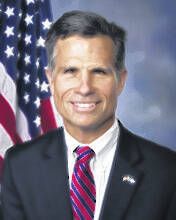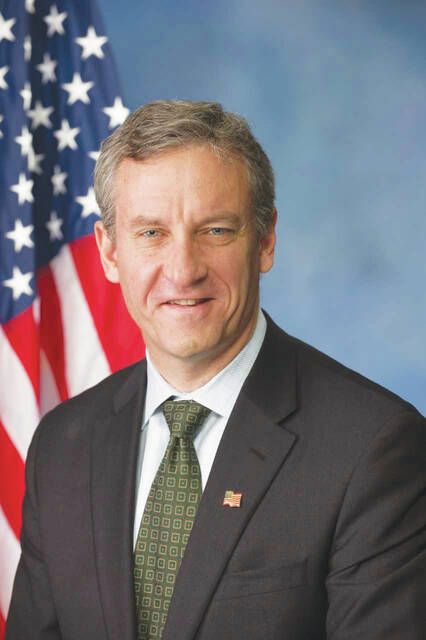Click here to subscribe today or Login.
WILKES-BARRE — The Pennsylvania Liquor Control Board (PLCB) this week released its Fiscal Year 2021-22 Annual Report, which details agency operations, sales trends, popular products, and financial results.
The annual report reviews the agency’s financials and provides insight into functions including store operations, licensing, marketing and merchandising, supply chain, wholesale operations, information technology, alcohol education, and personnel. The document is filled with statistics and information about how the agency works and where the money it generates goes.
The annual report also showcases sales by product category, individual products, counties, e-commerce, stores, and sales periods. For example:
• Vodka, whiskey, tequila and ready-to-drink spirits topped the list of product categories with the highest year-over-year dollar gains with increases ranging from 2.6% to 63.8% across categories.
• Retail dollar sales of $2.12 billion – though a decrease of 3.4% over the prior year – illustrate a return to “near normal” pre-pandemic purchasing patterns, with retail comprising approximately 75% of total agency dollar sales and licensee sales of $704.2 million accounting for the remainder.
• E-commerce sales in fiscal year 2021-22 totaled $13.5 million, a 19.2% decrease in dollar sales compared to the prior year. Though decreased since fiscal year 2019-20, when FWGS.com experienced unprecedented growth due to COVID-19 and the temporary closure of FW&GS stores, e-commerce dollar sales and transactions remain elevated over pre-pandemic year-over-year growth rates, with sales for 2021-22 up 171.9% and transactions up 160.4% as compared to 2018-19.
• Unflavored vodka was the top spirits category in 52 counties, while the remaining 15 counties had American whiskey as the top spirits category.
• California Cabernet sauvignon was the top wine category in 34 counties, while another 24 counties had box red wine as the top wine category; California chardonnay followed in six counties, and beverage wine followed in three.
• The top three counties – Allegheny, Philadelphia, and Montgomery – accounted for 35% of statewide sales.
To save on costs, a limited number of copies of the report is printed. This report – and reports from previous years – are available at lcb.pa.gov.
Meuser co-sponsors legislation aimed at increasing grant opportunities
U.S. Rep. Dan Meuser, R-Dallas, is a co-sponsor of a bill that will create greater opportunities for smaller communities that are often at a disadvantage to apply for, receive and manage federal grants, particularly for revitalization projects.
Representative Scott Franklin, R-FL, introduced the “Simplifying Grants Act,” aimed at making it easier for governments serving under 50,000 to receive funding. The bill is the House companion to legislation introduced by Sen. Marco Rubio of Florida. This legislation would require agencies to streamline the complex process for all current and future grant opportunities. It would also expedite response to communities impacted from natural disasters.
“These grants are taxpayer funded, but larger entities are often at an advantage in receiving them because they can hire grant writers and have lobbyists to obtain them,” Meuser said. “This act would directly benefit the counties, municipalities, cities, towns, villages, and school districts to compete fairly in receiving grants.”
There are at least 64 localities within the 9th District, which Meuser represents, with a population of less than 50,000 that can benefit from this bill.
The legislation requires that the director of the Office of Management and Budget (OMB) has within 180 days to simplify the applications for grants, for which non-urban local governments with a population of under 50,000 are eligible. This would apply to existing and new future programs.
It would also require the agencies, within 180 days, to make available a checklist for each required step of the grant process.
“My staff and I work hard year-round to help bring federal grants to our district for various entities,” Meuser stated. “It’s our hope this bill levels the playing field for us and for similar areas across the country.”
Cartwright legislation will improve federal software purchasing protocols
U.S. Rep. Matt Cartwright, D-Moosic, this week introduced the Strengthening Agency Management and Oversight of Software Assets Act — bipartisan legislation to increase oversight of federal government software purchases and reduce wasteful spending of taxpayer dollars.
Each year, the federal government spends billions of taxpayer dollars on software purchases, renewals, and license modifications. Limited assessments of existing software assets, combined with the way vendors sell software, often results in federal agencies making duplicate purchases. Without increased agency oversight and governance, software vendors profit at the expense of American taxpayers.
The Strengthening Agency Management and Oversight of Software Assets Act would require federal agencies to conduct an independent, comprehensive assessment of their current software assets and restructure their operations to reduce unnecessary costs.
“Without in-depth assessments of how agencies buy and use software, vendors often have the upper hand in transactions with federal agencies,” Cartwright said. “This bipartisan, bicameral legislation will streamline software procurement practices government-wide to the benefit of American taxpayers.”
The Strengthening Agency Management and Oversight of Software Assets Act builds on the success of Rep. Cartwright’s MEGABYTE Act, which reduced duplicate software purchases. Signed into law in 2016, the bipartisan MEGABYTE Act has saved American taxpayers over $450 million.
Specifically, this new legislation would require:
• Federal agencies to provide an independent, comprehensive assessment of their software purchasing practices to Congress, the Office of Management and Budget, (OMB), and the General Services Administration (GSA).
• Chief Information Officers (CIOs) to develop a plan to adopt enterprise licensing agreements, improving negotiating power against software vendors, and reduce costs.
• OMB to publish a government-wide strategy for software modernization based on the aforementioned audits and plans.
• Agencies to include their respective plans and performance assessments in annual budget submissions.
This legislation is cosponsored by U.S. Reps. Dan Meuser (R-PA-09), Ed Case (D-HI-01), Gerry Connolly (D-VA-11), Danny Davis (D-IL-07), Brian Fitzpatrick (R-PA-01), Glenn Grothman (R-WI-6), Michael Guest (R-MS-03), Sheila Jackson Lee (D-TX-18), Brenda Lawrence (D-MI-14), Mike Levin (D-CA-49), Ted Lieu (D-CA-33), ,Eleanor Holmes Norton (D-DC-AL), Katie Porter (D-CA-45), and Jamie Raskin (D-MD-08).
Pa. Department of Aging: Medicare Annual Open Enrollment Period underway
The Pennsylvania Department of Aging this week reminded Medicare beneficiaries that the Annual Medicare Open Enrollment Period is now underway until Dec. 7, and Pennsylvania Medicare Education and Decision Insight (PA MEDI) is available to help.
PA MEDI is Pennsylvania’s State Health Insurance Assistance Program. It is available through the 52 local Area Agencies on Aging (AAAs) and provides free, confidential, and unbiased education and assistance to Medicare-eligible individuals, their families, and caregivers to assist them in making informed health insurance decisions that optimize cost-savings and access to health care and benefits.
Through open enrollment, beneficiaries can join, switch, or drop Medicare Advantage or Prescription Drug Coverage. It is also the time to think about what benefits will matter and compare available options for 2023. A recent study by the Kaiser Family Foundation found that only three in 10 beneficiaries compared their current plan with other Medicare plans offered during the open enrollment period for 2020. Coverage and costs vary widely among both Medicare Advantage plans and Part D prescription drug plans
“From year to year, Medicare Advantage plans can change their premiums, cost-sharing requirements, and selection of covered drugs and supplemental benefits, as well as provider networks or prior authorization requirements,” said Susan Neff, PA MEDI director. “These changes could lead to unexpected and avoidable costs, and gaps in care for beneficiaries who do not at least review their options annually. We recommend beneficiaries review their plan’s Annual Notice of Change and compare available options on Medicare.gov or seek assistance from PA MEDI, the known and trusted local resource for objective Medicare information.”
Beneficiaries can visit Medicare.gov or call 1-800-MEDICARE to compare plans.
Trained counselors are available during open enrollment and year-round by phone, virtual or in-person sessions through the AAAs across the commonwealth. Older adults can contact their local AAA to schedule a personalized counseling session. For more information, they can call the toll-free PA MEDI Helpline at 1-800-783-7067, Monday through Friday from 8 a.m. to 5 p.m. All services are free and confidential.
Reach Bill O’Boyle at 570-991-6118 or on Twitter @TLBillOBoyle.











